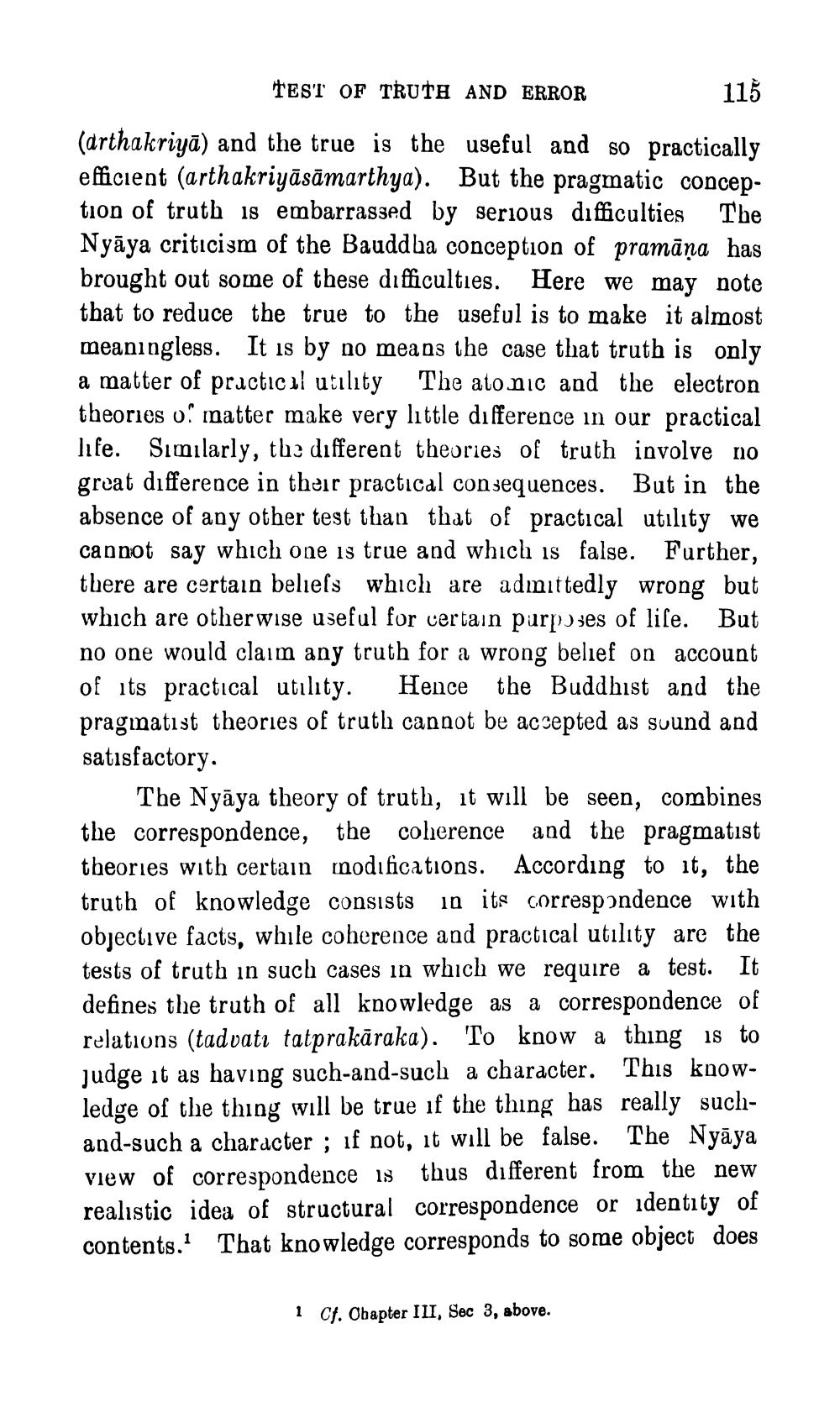________________
tesT OF TRUTH AND ERROR
115
(arthakriyā) and the true is the useful and so practically efficient (arthakriyāsāmarthya). But the pragmatic conception of truth is embarrassed by serious difficulties The Nyāya criticism of the Bauddha conception of pramāņa has brought out some of these difficulties. Here we may note that to reduce the true to the useful is to make it almost meaningless. It is by no means the case that truth is only a matter of practical utility The ato nic and the electron theories of matter make very little difference in our practical life. Similarly, the different theories of truth involve no great difference in their practical consequences. But in the absence of any other test than that of practical utility we cannot say which one is true and which is false. Further, there are certain beliefs which are adınıttedly wrong but which are otherwise useful for certain purposes of life. But no one would claim any truth for a wrong belief on account of its practical utility. Hence the Buddhist and the pragmatist theories of truth cannot be accepted as suund and satisfactory.
The Nyāya theory of truth, it will be seen, combines the correspondence, the coherence and the pragmatist theories with certain modifications. According to it, the truth of knowledge consists in its correspondence with objective facts, while coherence and practical utility are the tests of truth in such cases in which we require a test. It defines the truth of all knowledge as a correspondence of relations (tadvatı tatprakāraka). To know a thing is to Judge it as having such-and-such a character. This knowledge of the thing will be true if the thing has really suchand-such a character ; if not, it will be false. The Nyāya view of correspondence is thus different from the new realistic idea of structural correspondence or identity of contents. That knowledge corresponds to some object does
1
Cf. Obapter III, Sec 3, above.




